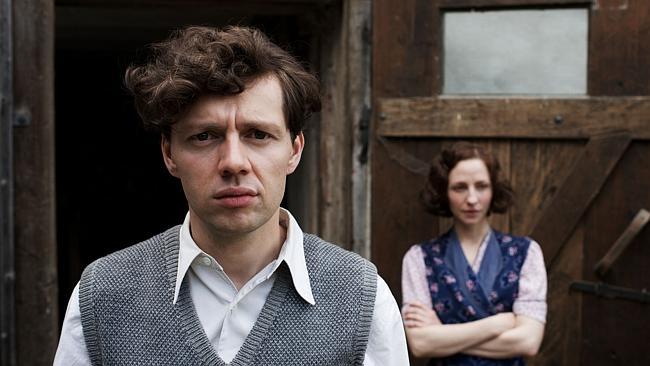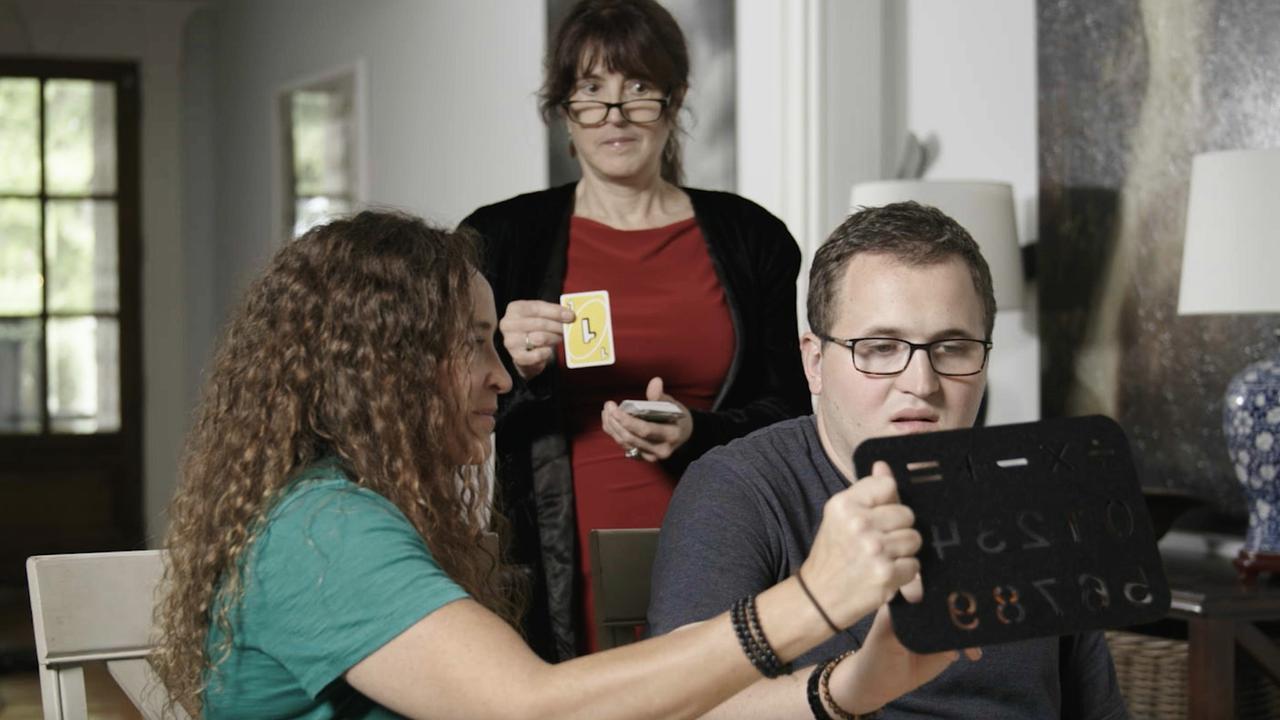Nazi Germany revisited in Oliver Hirschbiegel’s film 13 Minutes
German director Oliver Hirschbiegel is shedding light on one of the darkest corners of his country’s history.

Oliver Hirschbiegel is the director of one of the internet’s most parodied memes, the bunker scene featuring a steaming Adolf Hitler from Downfall.
That chilling film about Hitler’s last days elevated the Hamburg director in Hollywood’s eyes and led to English-language films — a journey that has admittedly been rocky.
The Invasion, his 2007 thriller with Nicole Kidman and Daniel Craig, needed to be picked up by Australian director James McTeigue; and his 2013 biopic Diana, starring Naomi Watts, was a very public bust for actor and director.
Hirschbiegel is back in seemingly more comfortable territory with 13 Minutes, a German drama reliving the failed assassination attempt on Hitler by Georg Elser. Not that Hirschbiegel felt particularly comfortable dramatising German history again.
FILM REVIEW: Stephen Romei’s verdict on 13 Minutes
“The Third Reich is not a comfortable story,” he says. “The spirits you’re dealing with there are much less pleasurable than what I dealt with when I was doing Diana.”
He was dealing with a heavy, dark energy, he says. “And Diana was a love story, basically.”
Reflection on the circumstances surrounding Hitler’s rise and fall continues to be a key point of contemplation for German artists. Such is the extent of the fascination, one of the bigger cultural successes of recent times was Timur Vermes’s Look Who’s Back, a satire about Hitler waking up in modern times and trying to assimilate in modern Germany.
Hirschbiegel says “humour is the best weapon against anyone” and says he is proud of the hundreds of “hilariously funny” mash-ups of his Downfall scene.
But his country is still fractured on how much it should retrace Hitler’s era. Elser’s tale was not well known within Germany when Hirschbiegel chose between two versions of the story. Leonie-Claire and Fred Breinersdorfer’s screenplay depicts the bohemian Elser’s appealing background.
The action he planned in 1939 in an effort to stall Hitler’s push towards war was admirable enough, but his personal story makes Elser even more palatable a character. (The competing screenplay used a more obvious, yet less illuminating, ticking time-bomb scenario, Hirschbiegel says).
Within Germany “people get the point” that this is not another mournful look back, the director adds.
“And they get the underlying message, which is that we had one [person] at least who saw it coming at a very early stage and who did something,” he says. “And that one man can make a difference. And that draws a straight line into now.”
Does it have a cleansing effect to realise there was at least one German dissenting in the most radical fashion?
“I think many people want that,” Hirschbiegel says. “Many people want to not really deal with it any more and move on. And, of course, it’s generations after the horror, but my position is we never get away from it. We’ll always be the perpetrators.
“We are the people forever who are responsible for the most horrible crime ever in the history of human mankind and there’s no way to move on. So whatever we can do to shed light on new aspects — and this one is a positive one — I think we have to and we should.”
The 57-year-old concedes the initial reaction of “German kids” to such a film is a collective roll of the eyes — they say they understand the Third Reich was abominable, but that it was another generation’s actions.
“And then they see the film and they connect with this guy, because they recognise themselves to a certain extent,” Hirschbiegel says. “He was a free spirit, he loved adventure, he wants to move around the world, he likes ladies, was a bit of an artist, a bit of a hippie — and that’s a good thing because they connect. They think he’s a cool guy.”
Hirschbiegel had no intention of going back to World War II and read the screenplay more out of curiosity.
“I was really surprised how I got sucked in immediately and got to learn things about this man that I hadn’t known,” he says.
The two Third Reich films and his most successful English-language effort, the 2009 film about the Irish Troubles, Five Minutes of Heaven, starring Liam Neeson and James Nesbitt, suggest he is at his best as a political filmmaker.
“Yeah, that’s what people have said,” he says. “The funny thing is I don’t see myself as a political filmmaker. I am a filmmaker.
“In my perfect world, I nudge the world a little by giving them something that makes them rethink certain attitudes or aspects. That’s closer to how I see myself. As a filmmaker, of course, I like to take people away on a journey. And move them. And not in a fluff way, if possible,” he says, laughing.
All of this brings us to his pilloried film about Diana, princess of Wales, which wasn’t a biopic so much as a vignette about her affair with the heart surgeon Hasnat Khan and the months leading up to her death.
Hirschbiegel says the public caning the film received didn’t dishearten him.
“No, that’s part of the deal,” he says. “I hardly know any director who always creates hits. I would do the film again. I think it’s a beautiful film. I would have loved a little more time to work on the script and have a little more money to do it, as always — but no, you try your best, everybody tries their best, and you have to present it to the world.”
There are no guarantees, he adds, and you have to live with negative reviews. “That’s part of the game, if you can’t stand that, you have to stop doing what you’re doing.
“As cynical as it may sound, at the end of the day the audience is always right. And … if a majority of reviewers decide they hate the film, they hate the film. It’s not their fault or my fault, it’s just the situation the film creates.”
Would it be easier just to make stories up rather than endure the scrutiny that comes with dramatising real people and events?
“Mmm, the thing is I’m not a writer,” Hirschbiegel says. “I don’t have stories inside me that are burning to come out. I’m a storyteller, not a story creator, so I very much rely on the projects that are suggested to me — and really, so far, I have been lucky.”
13 Minutes is open nationally.
THE ART OF PARODY: DON’T MENTION THE WAR
Oliver Hirschbiegel’s film depicting Adolf Hitler’s final days in his Berlin bunker, Downfall, has spawned hundreds of parodies, and the director is “very proud”. The film’s producer, Constantin Films, wasn’t though, deleting the parodies until it relented in 2010. Here are some of the best.
Hitler Finds out Chuck Norris is coming
youtube.com/watch?v=ZrHmcpRAZNs
All sorts of superheroes are heading Hitler’s way but Chuck Norris is the one he fears.
Hitler rants about the 2009 All Australian AFL Team
youtube.com/watch?v=1X4R_IDP4aA
AFL fans have appropriated the scene for all manner of controversies and coaches; this one would have pleased West Coast Eagle Mark
LeCras.
Hitler and the vuvuzela at the 2010 FIFA World Cup
youtube.com/watch?v=z-Ln_rqPpPk
Hitler loved “those Brazilian drums and all the singing” at the South Africa World Cup. Vuvuzelas, not so much.
Hitler is informed and rants about the Apple iPad
youtube.com/watch?v=2lui0-4IW64
The new Apple device doesn’t have multi-tasking and someone isn’t happy.
No Twitter for Hitler
youtube.com/watch?v=wd4WZ3LqCKw
His dog dies but he can’t tweet about it because the social media service is down again.


